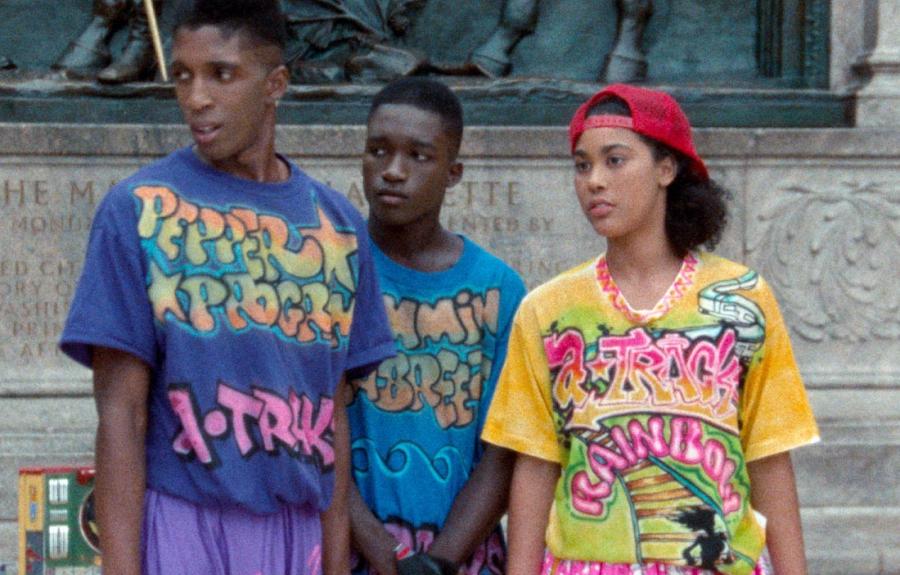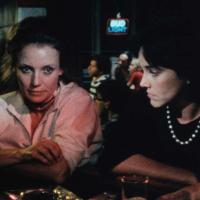Film series: Restorations & Rediscoveries

Cornell Cinema carries its long tradition of screening recent film restorations and rediscovered masterpieces with this slate of nine films. Restoration is a critical part of preservation and revives the vibrancy, clarity, and depth of films. This series reminds viewers of the material realities of film and the range of formats that exist. In addition to showing these films in all their renovated glory, we believe these movies will resonate with today’s audiences.
The Conversation (1974) was directed by Francis Ford Coppola and stars Gene Hackman. Hidden bugs, wires, recording devices, and murder. A surveillance expert overhears a snippet of a conversation and becomes convinced that the two people he is observing are about to be murdered. The Conversation is an exploration of anxiety and paranoia with all the cinematic splendor of The Godfather (filmed just two years earlier by Coppola). The Guardian calls it “A lonely, desperate, guilt-ridden masterpiece.”
Diva, the 1981 film directed by Jean-Jacques Beineix, is filled with memorable chase scenes through the streets of Paris and is a key entry in the cinéma du look wave of films that also included French filmmakers Leos Carax and Luc Besson. Winner of several Cesar Awards including cinematography, Diva is a New Wave thriller that oozes style. A young mailman falls in love with the American opera singer he is recording illegally, and quickly finds himself ensnared in a web of criminal activity. Rolling Stone called it “divine madness” with a new way of looking at the world that celebrates the art of filmmaking.
Born in Flames: A groundbreaking feminist film from the early 1980s filmed by Lizzie Borden. A girl gang on bikes takes to the streets of New York to rid the city of misogyny and to resist governmental patriarchy. Despite its low production budget, Born in Flames is considered an important talking point for the period; it is filled with action and innovative camera work to address systemic inequality in American society.
Alma’s Rainbow: Rainbow is the light of her mother’s eye. Watching her daughter grow into a young woman has made Alma more uptight. The return of Alma’s free-spirited sister from Paris signals the arrival of an alternative role-model. Ayoka Chenzira's cherished coming of age film has been carefully restored in 4K making the vibrant colors of 90’s fashion pop. Shadow and Act calls Alma’s Rainbow “an integral part of 90’s Black Cinema.”
The Devil, Probably (1977) directed by Robert Bresson follows the story of Charles, a disenchanted intellectual who decides suicide is the only relief from the world’s immorality. The New York Times praises Bresson’s master filmmaking and his ability to shape objects, people, and spaces into an alternative reality. This film contemplates the physical and intellectual decline of its age with astute precision and was initially banned in France as an incitement to teenage suicide. “[The Devil, Probably] has a purity of technique, an austere visual beauty, and a profundity and gravity that make it unique, for our time and the year when it was made, 1977.” (Chicago Tribune)
Dressed in Blue (Vestida de azul, 1983) follows the stories of trans women in Madrid during the 1980s. Director Antonio Giménez Rico explores the theme of prostitution and urban nightlife, while diving into the backstories of the women he interviews. Dressed in Blue examines a moment of newfound freedom in Spain following the end of Francisco Franco’s dictatorship.
In Sambizanga (1972), Sarah Maldoror explores oppression in Angola under Portuguese colonial forces. Maldoror is known for her work with Gilo Pontecorvo on The Battle of Algiers (1966). Sambizanga shows the story of a young black tractor driver who is taken as a political prisoner by European authorities. As he is tortured by the police, his wife sets out across the country seeking information about his disappearance.
Mississippi Masala (1991) was directed by Mira Nair and stars Denzel Washington. The film is the story of young love and racism in the deep south. Local born Demetrius and Mina fall for each other, but their match is met with disapproval. The two challenge their families’ and society’s rules and prejudices against interracial dating.
Vengeance is Mine (1984) is directed by Michael Roeme,r known for his previous films Nothing but a Man (1964) and The Plot Against Harry (1989). Vengeance is Mine has been recently rereleased on 35mm with select showings around the country. The film traces the deeply rooted animosity between two sisters and their adopted mother in New England. Vulture exclaims that the film is a family drama whose “deep vein of emotional terror sneaks up on you.”











